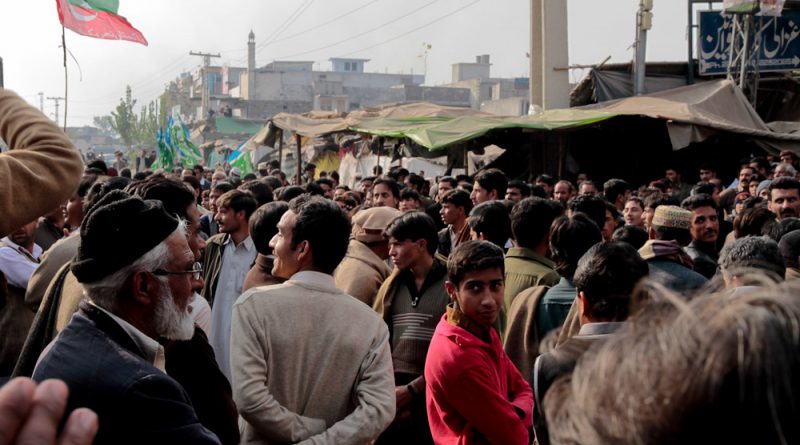FOCUS on Growing Protests: Pakistan
Charlotte Sens
Staff Writer
On October 11, a school van driver was killed, and a student was injured in a shooting by an unidentified assailant in Mingora, a town in Pakistan’s Swat district. This act of violence sparked massive outrage and the largest protests in the district’s history, with more than 15,000 people attending, according to Al Jazeera, marking the sixth protest in almost 2 months.
VOA reports that protestors agreed to disperse after 40 hours of negotiations with local government officials. These negotiations produced assurances that the victims’ families would receive financial compensation, and that all possible steps will be taken to arrest the shooter.
This massive uproar is aimed at the government, with protestors calling for officials to take greater measures against the region’s uptick in violence. Many locals accuse the Tehrik-i-Taliban (TTP) of being responsible for this increase in violence, as the Swat district was once a stronghold of the TTP. Highly religious residents previously ardently supported the organization, and citizens worry the group is still influential even though its grip on power has eased, according to Foreign Policy.
In the past 15 years, the Swat district has seen greater development, more local tourism, and the establishment of various educational institutions and sports pitches, leading to a sharp decline in support for the TTP. While police have ruled out terrorism as a motive in the school van shooting, as they believe it was a targeted attack, no person or group has claimed responsibility for the crime.
The protests in the Swat district come 10 years after Malala Yousefzai was shot in Mingora by a TTP member. The attack was an assassination attempt motivated by her activism. Yousefzai, who is an advocate for the education of women and girls, went on to win the Nobel Peace Prize in 2014 and found the Malala Fund, an organization that invests in various activists who champion girls’ education. Yousefzai recently returned to Pakistan for the second time since the attempt on her life to visit a region that suffered from extreme flooding that has caused over $30 billion in damages. In Sindh province, she has spoken with girls who were forced out of schools due to the flooding, urging them to return to school as soon as they are able and calling on officials to mitigate education loss and reinstating schools as learning centers, according to the Malala Fund.
Elsewhere in Pakistan, in the capital of Islamabad, city officials are preparing for other protests. Former Prime Minister Imran Khan was set to face trial on charges of contempt on September 22, reports Bloomberg. Khan is facing charges for comments made against a female judge and police officer in August. If Khan is convicted of contempt, he would be ineligible for political office for 5 years, eliminating him from the political sphere.
According to Reuters, the charges against Khan will most likely be dropped. Despite Khan’s legal troubles, he has continued to hold rallies, urging his supporters to hold massive protests in the capital. Khan pushed for snap elections, which would cause the national elections scheduled for 2023 to be held a year early. This would allow Khan to regain a seat in a political office after he was removed from the role of Prime Minister after a no-confidence vote in April. In by-elections held on Oct. 16, Khan’s party, Pakistan Tehreek-e-Insaf (PTI) won six of eight available National Assembly seats available, reports Al Jazeera. Imran Khan claims that this is a show of the nation’s support for him and is planning to intensify demands for early polls.
This political turmoil comes at a time when the nation is facing disaster on many fronts. The south of the country is still recovering from the flooding, leaving many displaced and in need of humanitarian assistance. The Swat district in the north is facing public outrage at a rise in violence. Additionally, the value of the rupee has plummeted, and inflation is on the rise, despite Pakistan recently securing a loan from the International Monetary Fund (IMF). These factors lay the groundwork for great unrest in Pakistan, making the next few months crucial for the peaceful future of the nation.
Image Courtesy of Usman Malik, Flickr


